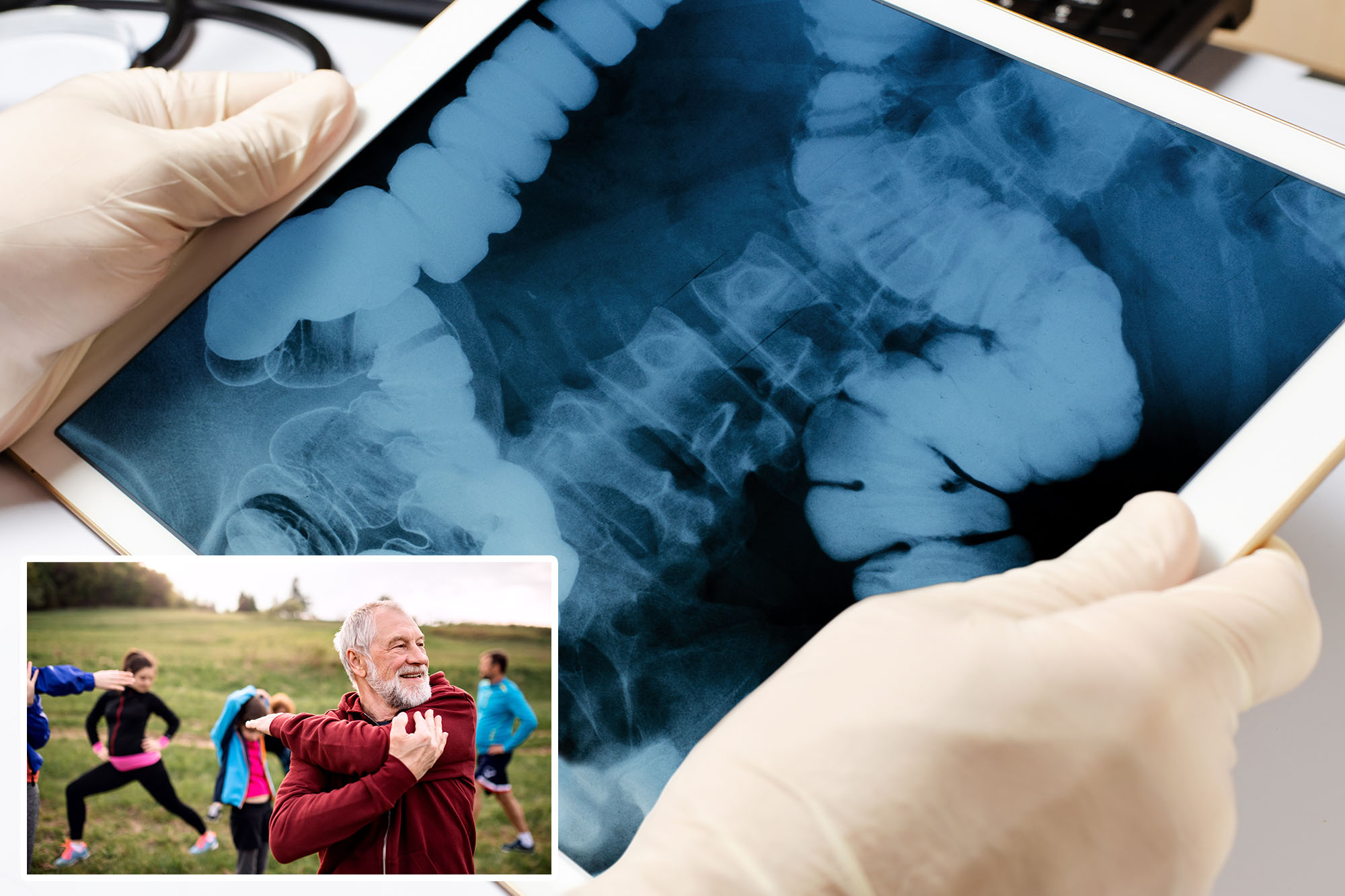
Experts have long debated the best time to exercise, but now, researchers have identified two sweet spot sweat intervals that could play a “crucial role” in cancer prevention.
According to a revelatory new study, being active first thing in the morning or later in the evening may reduce the risk of bowel cancer by 11% — and they’ve even narrowed it down to two times on the clock.
Researchers published their findings in the journal BMC Medicine and maintain that highlighting specific times when physical activity is “most beneficial” could lead to targeted cancer prevention strategies.
Led by experts from Germany’s University of Regensburg, the study assessed 86,252 people aged 42 to 79 whose physical activity was tracked and measured using a wrist accelerometer.
Researchers highlighted four activity patterns among this population: continuous activity throughout the day, activity late in the day, activity in the morning and evening, and activity at midday and at night.
Over a five-year follow-up period, 529 cases of colorectal cancer, also called bowel cancer, were reported.
Researchers determined that two daily peaks, at roughly 8 a.m. and 6 p.m., “were associated with reduced colorectal cancer risk, beyond the benefits of overall physical activity.”
According to the study, people active in both the early and late parts of the day had an 11% lower risk of colorectal cancer, compared with 6% for daylong activity and no change for those who exercised in the middle of the day and the evening. Data from those who were only active later in the day proved inconclusive.
Professor Dr. Michael Leitzmann, chair of the Department of Epidemiology and Preventive Medicine at Regensburg, was the lead investigator for the study.
“Our study highlights that not only is physical activity important for reducing colorectal cancer risk, but the timing of peak activity throughout the day could play a crucial role,” he said.
He and his team are hopeful their findings can help shape the future of cancer prevention.
“By identifying specific times — early morning and late day – when physical activity is most beneficial, our findings open new avenues for targeted prevention strategies,” he said.
Bowel cancer an develop anywhere in the large bowel, which includes the colon and rectum.
About 150,000 Americans are diagnosed annually with colorectal cancer, which includes cancers of the colon and rectum, according to the Colorectal Cancer Alliance. It’s a leading cause of cancer-related deaths worldwide.
Colorectal cancer has long been associated with older adults, especially people over 65. However, rates have steadily risen among adults under 50 since the ’90s.
Among these younger adults is 47-year-old actor and “Dawson’s Creek” alumni James Van Der Beek, who revealed his colorectal cancer diagnosis last week.
Exercising at different times of the day can affect the body in different ways, as nearly all cells and biological processes in the body rely on circadian rhythms — the natural bodily clock that runs close to a 24-hour cycle.
A separate study found that exercising in the morning on an empty stomach can boost your metabolic rate and help you burn more calories during your workout.
Meanwhile, researchers at the University of Sydney, Australia, found that people who exercise at night have a lower risk of developing heart disease and dying than those who exercise in the morning.
Dr. Helen Croker, assistant director of research and policy at the World Cancer Research Fund, which funded the latest study, said the findings further cement the importance of exercise in cancer prevention.
“Being physically active is one of our cancer prevention recommendations, and we know this cuts cancer risk,” she said. “These intriguing new findings offer potential for developing more specific recommendations, including patterns and timing of physical activity, for reducing cancer risk.”
And experts say you don’t have to be a gym rat to avoid a cancer diagnosis.
According to a recent study, just four to five minutes of “vigorous physical activity” can significantly reduce cancer risk in sedentary folks.














